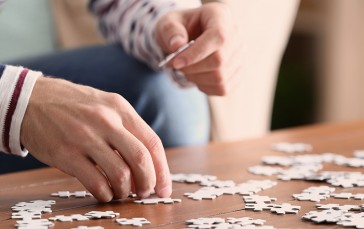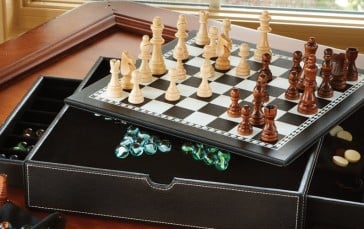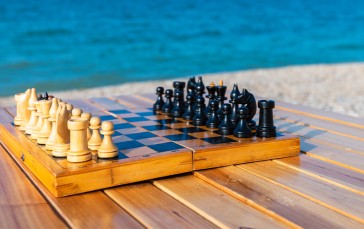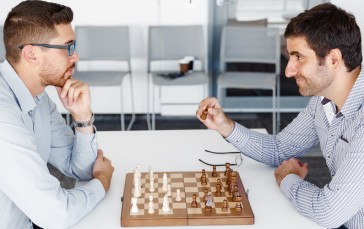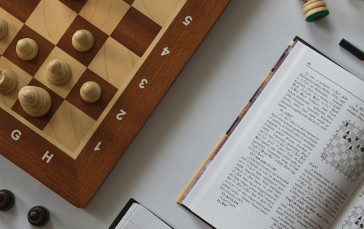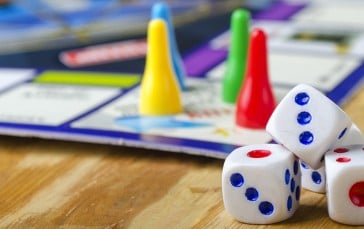Improve Your Chess Skills
Chess is an exhilarating game that allows you to put your logical thinking to the test – but it can also be frustrating.
Chess is a game that has been challenging the world’s most renowned thinkers for more than 15 centuries and defeating an experienced opponent isn’t always an easy feat. If one fails to take down the rival king time and time again – well, that’s just disheartening.
The good news is that there are ways you can up your game and improve your chess skills. From working on your own technique to deciphering your opponent’s next move, chess is anything but a game of chance.
To help you rule the board time and time again, here are 10 expert tips that will help to give you the upper hand.
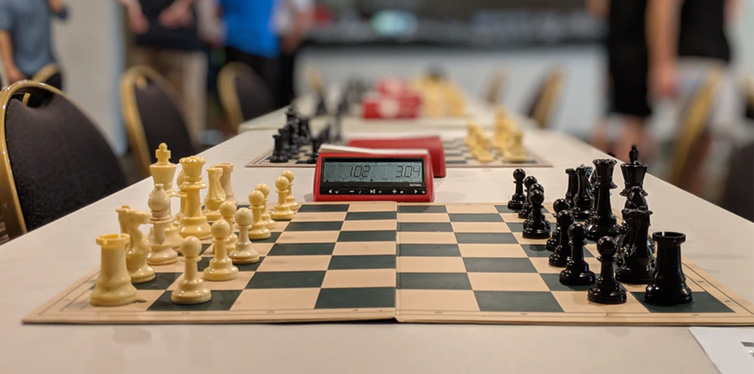
1. Solve Tactics Every Day
Playing chess has a lot to do with, err, not playing chess. Yes, you read right. Since most of the focus is on tactics and strategies, we suggest you spend some time each day doing puzzles or other tasks that involve problem-solving. This will encourage you to think “out-of-the-box” and will build the best type of logic. You can then implement the strategies you learned when you next take on someone’s kingdom.
2. Practise Makes Perfect
You can analyze your game by yourself, with a friend or with a coach. What’s important is that you actually set time aside to practice. Sometimes practicing means scrutinizing the chess set for hours and at other times, it’s as simple as playing an easy game with your 8-year-old nephew. With each game you play, your insight will grow and so will your technique.

3. Find Your Style
Maybe defending your pieces is your thing, or maybe you have a knack for attacking. Whatever you are good at, we suggest that you identify your style and then steer each challenge in that direction. Like with most things in life, identifying your strengths will help you to improve your weaknesses.
4. Play Competitive Chess
Some individuals find competitive chess to be way out of their comfort zone and prefer light-hearted games with amateur friends and family members. If you want to build up your repertoire as an expert, however, then you will have to branch out and find more competitive opponents. Joining a chess club is one way to associate yourselves with players who take the challenge seriously.
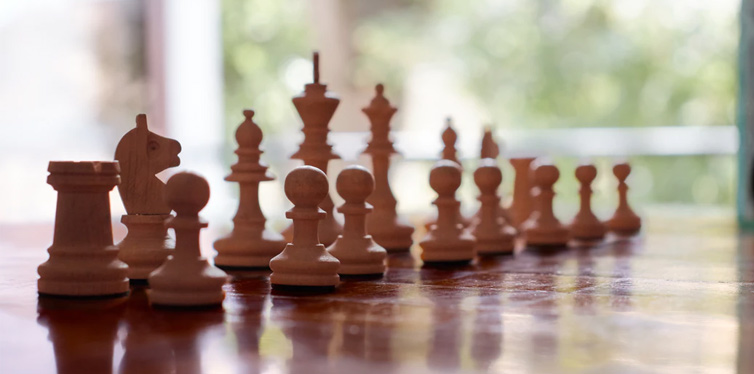
5. Study Grandmaster Games
When you study Grandmaster Games, you open up the opportunity to analyze games of proficient players. With this analysis, you can learn invaluable concepts and maneuvers which are next to impossible to discover yourself.
When you scrutinize a GM game, stick to the well-annotated games and try to understand why the moves were played. In other words, approach the challenge from an active position. Active learning is one of the best ways to expose yourself to new strategies and logic. If you allow your brain to work while you study grandmaster games, it’s more likely to do the same in your own games.
6. Always Keep An Eye On Your Queen
Your queen is your prized piece right from the get-go and you always want to keep a strong eye on this lady. Very often, players get too keen to move the queen out onto the attack. But a good rule of thumb is to give your opponent time to place his pawns before moving this authority figure onto the frontline.
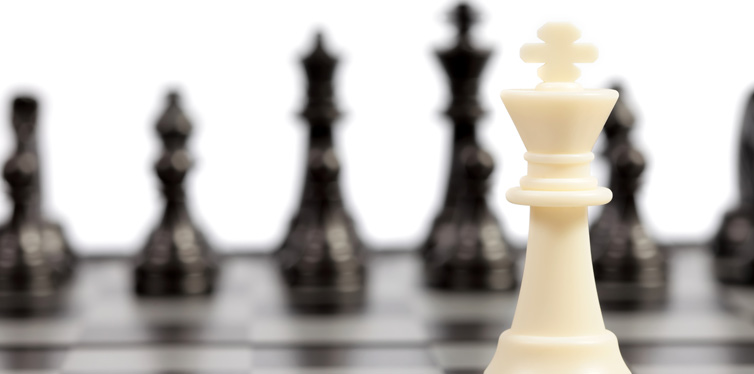
7. Follow 20/40/40 Rule
What makes chess so thrilling is that the challenge is constantly evolving and one move can change the game completely. This means that you need to be prepared to work on all elements of the game if you plan on winning. Many players make the mistake of focusing on a portion of the elements and completely neglect the others. But this is where 20/40/40 rule is super nifty. Essentially, the rule encourages you to spend 20% of the time on openings, 40% on Middlegame and 40% on Endgame. This technique also helps to prevent games that lag or go on for hours without much excitement.
8. Use Technology
Technology has left so many aids at our disposal – so use them! From online chess games to software that can figure out what and when things went wrong, we suggest you broaden your horizons and use technology to improve your skills.
Just a word of caution – use it wisely! Do not become so dependent on technology that you start to play like a robot. In real life, the human element makes all the difference.
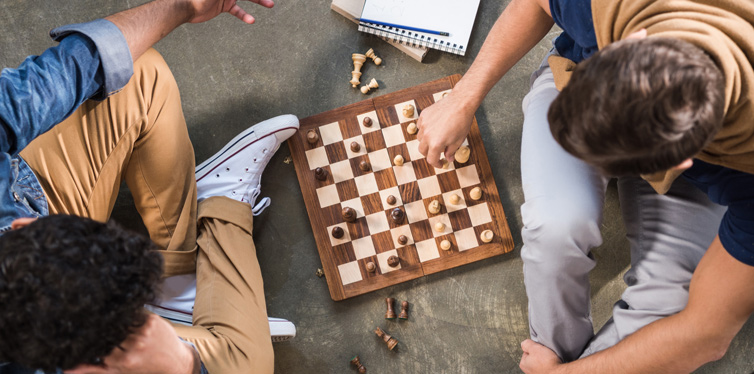
9. Find A Mentor
With a mentor at your side, you will be able to improve your skills in no time. Keep in mind that a chess mentor is not the same as a coach. Mentoring does not focus on homework and assignments but, instead, it gives you someone who you can relate to and look up to. A chess mentor will listen to your ideas with enthusiasm and will be open to discussing both your failures and achievements. In a nutshell, a mentor should be the number one person who you can turn to for advice.
While a mentor doesn’t need to be a Grandmaster or a professional player, he should ideally be a more experienced player and come with a pool of wisdom that he is willing to share.
10. Remember To Have Fun
Chess is an excellent way to put your mental abilities to the utmost test – it’s also a way to build skills beyond measure. But if you fail to see the fun in it, you will lose your passion and your willingness to improve your game with it. Remember to relax, revel in the challenge, and if you don’t succeed at first – just try again…and again.
Sources:
- 10 Steps for Getting Good at Chess – Fast – The Chess World
- How to Become a Better Chess Player – WikiHow



